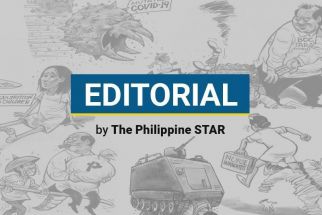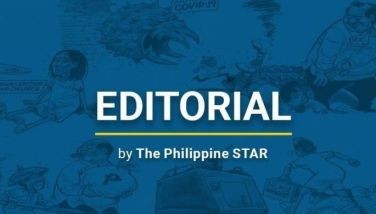Spotlight on press freedom

One of the things the pandemic briefly took away from us was the film-viewing experience. While technology has made it possible for us to watch the same film simultaneously despite being on different screens, the in-person cinema viewing experience is still truly unique. Film has always been a representation of not just the state of art, but oftentimes a reflection of the values that societies hold dear. It sometimes also serves as a critique of institutions, both public and private. Let us also not forget how different film-viewing is when it is done in person. A communal event that allows you to react in real-time to watching a story unfold right before your very eyes.
In fact, when it became possible, one of our first in-person events was a film-screening. The month of March celebrates the Francophonie, and as our contribution to the celebration of the French language and the values associated with it, we organized a screening of the film Les Guérisseurs last year. The film tells the very human stories of individuals from various generations involved in the medical field. It also showcases some innovations made in the area, which Switzerland continues to excel in as a country.
Recognizing the importance of film and the stories they can portray, the Swiss embassy in the Philippines has organized a screening of the documentary, Radio Silence by Juliana Fanjul, a Mexican director now based in Switzerland. The documentary features Carmen Aristegui, a Mexican journalist and spotlights her struggles as a member of the media exposing stories of corruption and abuse of power.
Her narrative is not an isolated case. All around the world, the freedom of the press continues to be a pressing issue. The media has a foundational role to play in democracies as they are responsible for providing information to the general public, while asking the questions that provide transparency and accountability for institutions responsible for governing. Actions that seek to censor or control their activities are detrimental to this pivotal role that they play and serve to erode the opportunities that democracy can bring.
As a country that strongly believes in the values of democracy and peace, Switzerland recognizes the importance of a free media environment. In fact, the freedom of the press is enshrined in the Swiss constitution, with the entire Article 17 devoted to ensuring that media is free to exercise their responsibilities, censorship is prohibited and that their sources will have guaranteed protection. Switzerland continues to rank among the top 15 countries in the Press Freedom Index and recognizes that more work needs to be done to guarantee this right of the press at home and abroad.
This is why we laud the work of journalists such as Ms. Aristegui and, closer to the Philippines, Nobel Peace Prize winner Maria Ressa. As we also celebrate Women’s Month last March, I believe that both women should be recognized for their skill and tenacity in the face of adversity. While they should not have to face persecution for the work that they do, they have chosen to remain steadfast in exercising their responsibilities. Their commitment to an environment where ideas can be debated and facts checked, to an environment that nourishes and strengthen the values of democracy, is truly commendable. However, we also note that there are countless other nameless journalists who have chosen to commit to the same path as Ms. Aristegui and Ms. Ressa and who have lost their lives in doing so. Switzerland outright condemns these attacks and senseless killings as they seek to instill fear in those who choose to speak truth, while weakening efforts to ensure genuine press freedom.
Indeed, films are a reflection of where society stands at a certain point in time. Think of the Great Dictator of Charlie Chaplin in 1940 for instance. Radio Silence spotlights the story of one journalist who is persecuted for her actions and the chilling effect it has on press freedom. It is my hope that this film continues the conversation on press freedom and how we continue to strengthen it. For silence is not only one of the virtues of the wise.
And since I cited a movie of 1940, let me quote what the Rabbi Joachim Prinz said about silence in his speech at the 1963 march on Washington For Jobs and Freedom: “When I was the rabbi of the Jewish community in Berlin under the Hitler regime, I learned many things. The most important thing that I learned under those most tragic circumstances was that bigotry and hatred are not the most urgent problem. The most urgent, the most disgraceful, the most shameful and the most tragic problem is silence.”
As the Swiss are known to favor multi-sectoral cooperation, evidenced by the number of public and private multinational organizations that call Switzerland home, we believe that the public and private sectors should collaborate and make press freedom a key priority. The private sector benefits from the secure and constant source of information and the transparency that the media provides. Public institutions ensure an environment that allows for criticism and feedback, while also gaining support due to the trust provided to them by the general public. All of these are tell-tale signs of a healthy democracy – one where every voice is truly heard.
* * *
Alain Gaschen is the Swiss Ambassador to the Philippines since August 2019.
- Latest
- Trending
























